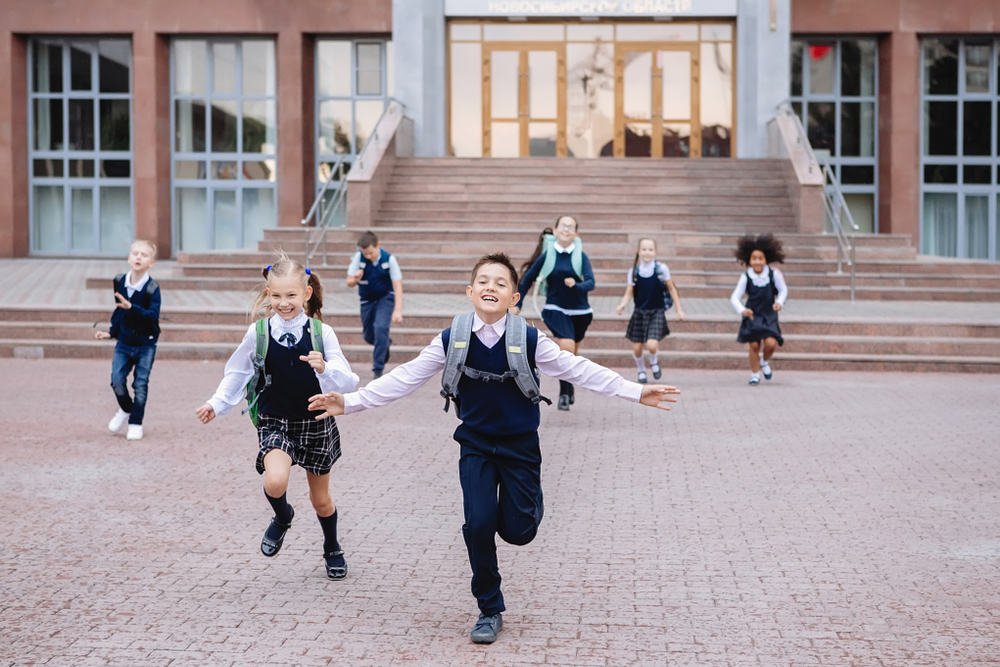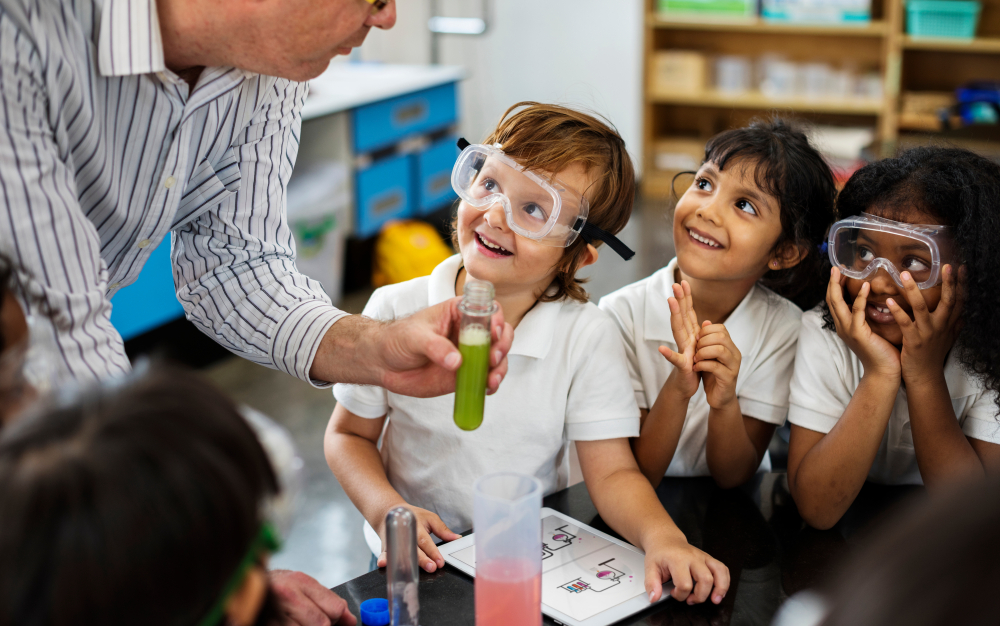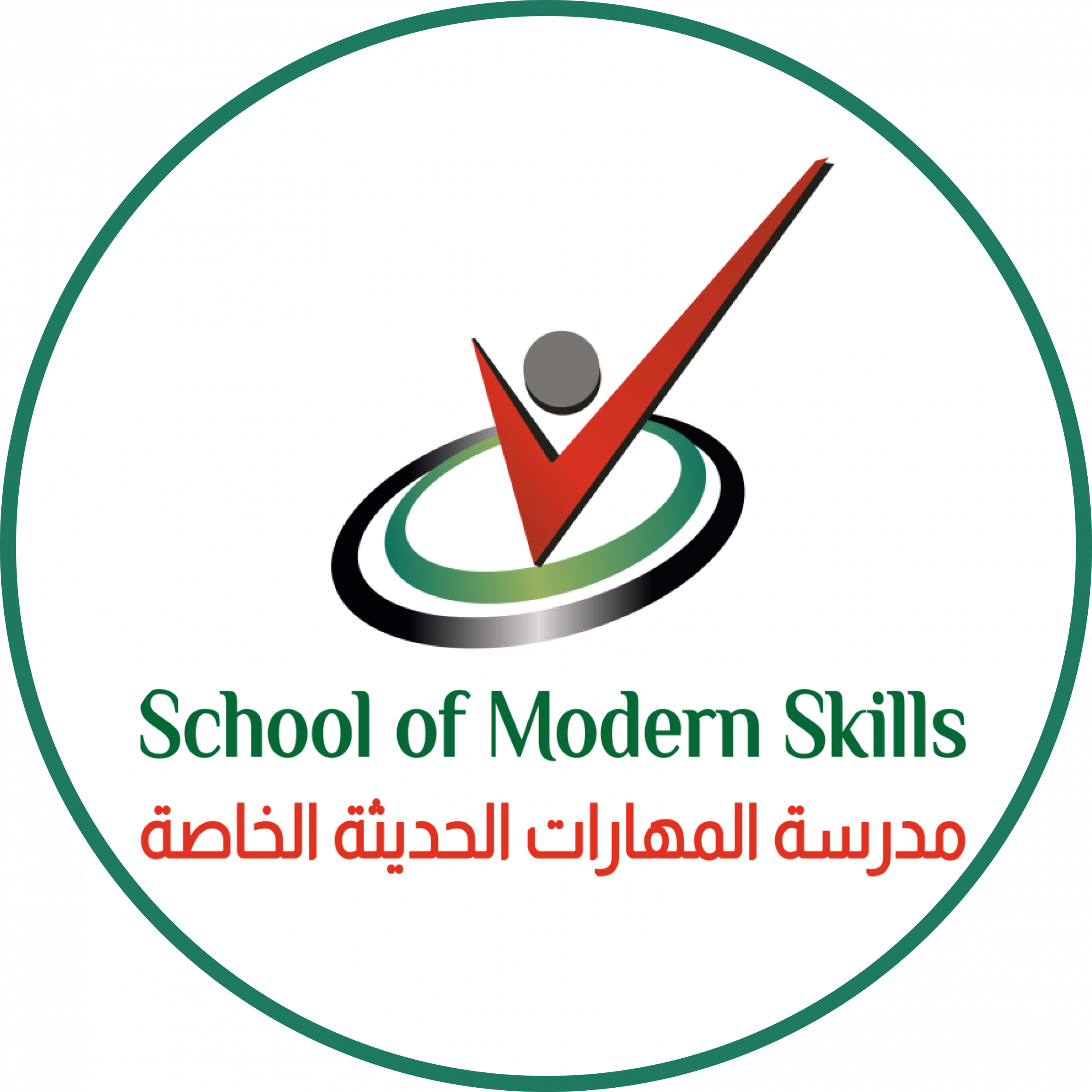
We’ll discuss Dubai schools’ term times and educational facilities so you can decide which school is right for you.
Seasons in Dubai
Dubai, located in the United Arab Emirates (UAE), lies north of the equator. Its seasons are aligned more closely with those of the Northern Hemisphere (Europe and North America), rather than the Southern Hemisphere (Australia and Southern Africa). However, Dubai experiences only two main seasons: a hot summer and a milder winter.
Summer in Dubai spans from May to September, characterized by extreme heat with temperatures often exceeding 40°C (104°F). Humidity can also be high, making outdoor activities challenging. Dust storms occasionally occur during this period due to the arid environment.
Winter, from October to April, offers less harsh conditions, with temperatures ranging from 14°C to 30°C (57°F to 86°F). This season is ideal for outdoor activities, with cooler mornings and evenings and occasional rain, particularly between December and February.
Unlike other regions such as Europe, Dubai does not experience distinct spring or autumn seasons, and there are no drastic temperature drops. Instead, the transition between seasons is marked by gradual changes in temperature and humidity.
The Dubai School Term
Although the seasons differ from those in North America and Europe, the Dubai school term remains largely similar.
In Dubai, school schedules are generally set by the UAE’s Ministry of Education, with some flexibility based on the type of school. The academic year typically starts in late August or early September and concludes in late June or early July. It is divided into three terms with breaks in between.
The first term runs from late August or early September to mid-December, followed by a three-week winter break. The second term extends from January to late March or early April, with a two-week spring break. The final term spans from mid-April to late June or early July.
School days in Dubai usually run from 7.30 am to 2.00 pm or 2.30 pm, though this can vary slightly depending on the school level and specific regulations.
In Europe, the academic year is similar, often beginning in late August or early September and ending in early to mid-July, with varying term lengths and holiday breaks depending on the country. For example, many European schools have a longer summer vacation and may start their new school year in early September.
North American schools generally start in late August or early September and finish in late May or early June, so American schools tend to also have a long summer break, and the school day usually runs from about 8.00 am to 3.00 pm.
European and North American schools also tend to have different holiday observances and break durations compared to Dubai, reflecting regional and religious traditions.
At Dubai SMS
Dubai School of Modern Skills has an academic calendar that closely mirrors that of US schools, allowing international students to align their breaks with family and friends abroad. However, we also observe local and Islamic holidays. Specific dates vary each year, but the school year starts in late August, and is divided into three terms with a three-week winter break in December. The second term begins in January and concludes with a spring break in April. The third term resumes after the spring break and ends in late July.
On Fridays, our school day ends early to respect the Islamic holy day, while we follow a standard Saturday/Sunday weekend. School hours are 07.45 for all students, although the end of daily classes is different, at:
- 12.40 for kindergarten
- 14.40 for primary
- 14.50 for secondary students
Academic Facilities at Dubai SMS

Dubai School of Modern Skills (SMS) is equipped with a range of high-quality academic facilities designed to enhance students’ learning experiences and support their overall well-being. The school boasts state-of-the-art classrooms featuring interactive whiteboards and advanced multimedia tools that facilitate dynamic and engaging lessons. These technological resources enable teachers to deliver content in innovative ways, making learning more interactive and accessible.
The science laboratories at Dubai SMS are well-equipped with modern instruments and resources, allowing students to conduct experiments and engage in hands-on learning. This practical approach is crucial for deepening students’ understanding of scientific concepts and fostering critical thinking skills. Similarly, the school’s dedicated computer labs provide students with access to up-to-date software and technology, supporting digital literacy and project-based learning.
Additionally, Dubai SMS offers specialized facilities such as art and music rooms, which nurture creativity and self-expression. The art studios are stocked with various materials and tools, enabling students to explore different mediums and techniques. The music rooms are equipped with a range of instruments, supporting both individual and group musical development.
Physical well-being is also a priority, with modern sports facilities that include a gymnasium, swimming pool, and outdoor sports fields. These amenities promote physical fitness and provide students with opportunities to participate in a variety of sports, contributing to their overall health and team-building skills.
These high-quality facilities are integral to the academic success and well-being of students. They not only enhance the educational experience but also support the development of a well-rounded individual by fostering academic, creative, and physical growth.
Why a Focus on STEM is Crucial in Education
Focusing on STEM (Science, Technology, Engineering, and Mathematics) in education is essential because it equips students with critical skills needed for the future workforce. STEM fosters problem-solving, innovation, and adaptability, which are crucial for addressing complex challenges and keeping pace with technological advancements.
It encourages hands-on learning and real-world application of concepts, preparing students for a range of career opportunities. By emphasizing STEM, education systems help students develop the expertise needed to drive economic growth, technological progress, and solutions to global issues, ensuring they are well-prepared for the evolving demands of the modern economy.
Robotics in the Classroom
Educational robotics involves using robots and related technologies to support learning across various subjects, enhancing students’ engagement and understanding. In the classroom, robotics provides hands-on, interactive experiences that make abstract concepts more tangible. It fosters problem-solving, critical thinking, and collaboration as students build, program, and operate robots to achieve specific tasks.
Robotics is useful in education because it integrates STEM learning with practical application, promoting deeper comprehension and enthusiasm for science and technology. It also develops essential skills such as coding, engineering, and teamwork, preparing students for future careers in these fields.
While robots themselves won’t replace teachers, the systems used in educational robotics can significantly aid teachers by offering personalized learning experiences. These systems allow teachers to tailor instruction to individual students’ needs, track progress, and provide targeted support, enhancing overall educational outcomes and making learning more effective and engaging.
VR in the Classroom
Virtual Reality (VR) is highly useful in the classroom as it provides immersive, interactive experiences that make learning more engaging and effective. By simulating real-world environments, VR allows students to explore complex concepts and scenarios safely, enhancing their understanding through experiential learning. It offers a dynamic way to visualize subjects like science and history, making abstract ideas more tangible.
VR is advantageous for children, including those with ADHD, as it captures their attention and can cater to various learning styles without negative impacts. Its interactive nature helps maintain focus and encourages active participation, enriching the educational experience.
AI in the Classroom
AI in the classroom is transforming education by personalizing learning and enhancing student development. Beyond tools like ChatGPT, AI encompasses various technologies that adapt to individual students’ needs, providing tailored content and feedback. This personalization helps address diverse learning styles and paces, improving engagement and comprehension.
AI-powered systems analyze student performance, identify strengths and weaknesses, and offer targeted support, leading to more effective learning outcomes. Additionally, AI tools assist in automating administrative tasks, giving teachers more time to focus on instruction. As an ever-evolving technology, AI’s potential parallels the capabilities of the human brain, continuously improving to support and enrich the educational experience.
Ready for a Tour? Contact Dubai SMS

For parents considering Dubai School of Modern Skills, a campus tour offers a firsthand glimpse into the school’s vibrant environment and exceptional facilities. To explore how Dubai SMS can support your child’s education and development, book a tour today and see what sets our school apart.
Or simply read more about:
